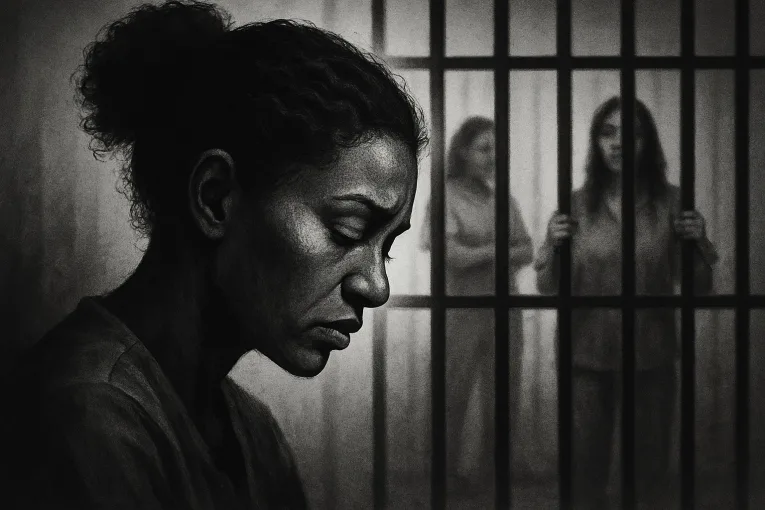
As Women’s History Month comes to a conclusion across the United States, a sobering statistic casts a long shadow over the celebration: While American women make up just 4% of the global female population, they account for more than 30% of the world’s incarcerated women.
This staggering reality, highlighted in a recent post by the Prison Policy Initiative, underscores a broader—and often overlooked—dimension of the mass incarceration crisis: its gendered impact.
A graphic shared on social media by the organization compares women’s incarceration rates among founding NATO countries. The results are stark. The United States incarcerates women at a rate of 133 per 100,000 people, dwarfing countries like Portugal (15), the United Kingdom (13), and France (7). No other NATO country even comes close.
“When it comes to the mass incarceration of women… other countries don’t even come close to the United States,” the report bluntly states.
Mass incarceration in the U.S. is often framed as a crisis of race and poverty—and rightly so—but gender is rarely centered in the conversation. Yet women, particularly women of color, have become the fastest-growing segment of the incarcerated population in recent decades. The vast majority are mothers, many of them primary caregivers, whose imprisonment has devastating ripple effects on children, families, and entire communities.
Women in jail and prison are more likely than men to have been criminalized for poverty-related offenses, including unpaid fines, drug dependency, and survival crimes such as shoplifting or sex work. They are also more likely to be survivors of trauma, intimate partner violence, and sexual abuse.
Despite this, their needs are often unmet in correctional settings. From inadequate access to reproductive healthcare, to mistreatment during pregnancy and childbirth, to lack of gender-responsive programming, the system is rarely designed with women in mind.
The toll of incarcerating women extends well beyond prison walls. When women are incarcerated, entire family units are disrupted—children enter foster care, elders lose caregivers, and households are fractured. According to the Prison Policy Initiative, 80% of incarcerated women are mothers, most of whom were the primary caretakers prior to their imprisonment.
And while men’s incarceration often results in family members stepping in to provide support, incarcerated women are far less likely to have someone to take their place.
As calls to end mass incarceration gain momentum, advocates stress that reforms must be inclusive of women and gender-expansive people. That includes investing in alternatives to incarceration such as community-based mental health and substance use treatment, expanding access to housing and employment, and dismantling systems that criminalize poverty and survival.
Policies like California’s SB 233, which protects sex workers from arrest when reporting a crime, or efforts to end cash bail for nonviolent offenses, are part of a growing movement to decriminalize vulnerable populations and offer supportive, not punitive, responses to harm.
“This Women’s History Month,” the Prison Policy Initiative wrote, “we’re thinking of all the women locked behind bars, away from their families. They can’t get lost in the fight to end mass incarceration.”
Indeed, if we are to end mass incarceration in the U.S., we must center the voices and experiences of incarcerated women—not just as victims of the system, but as powerful agents of change within it.